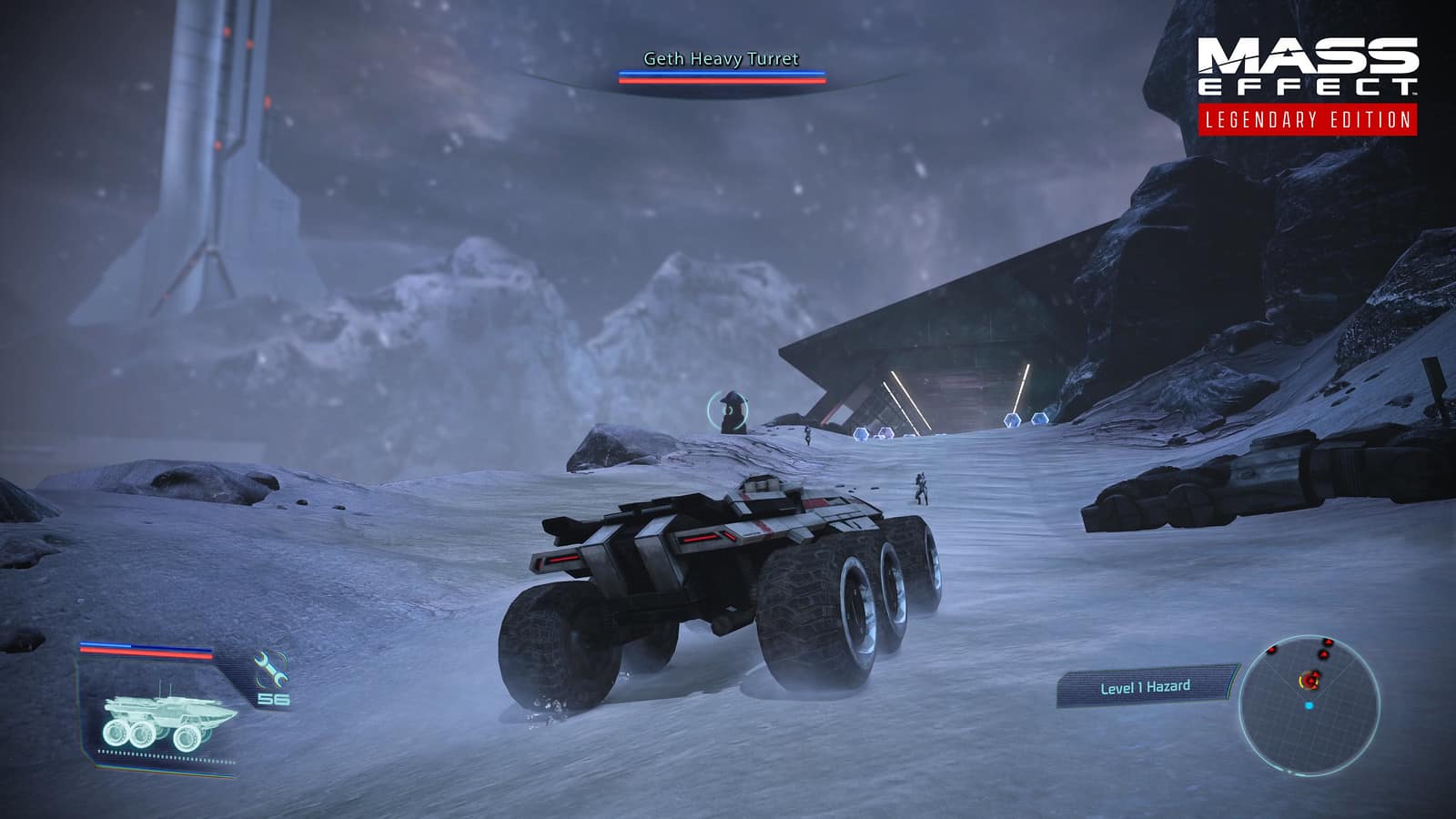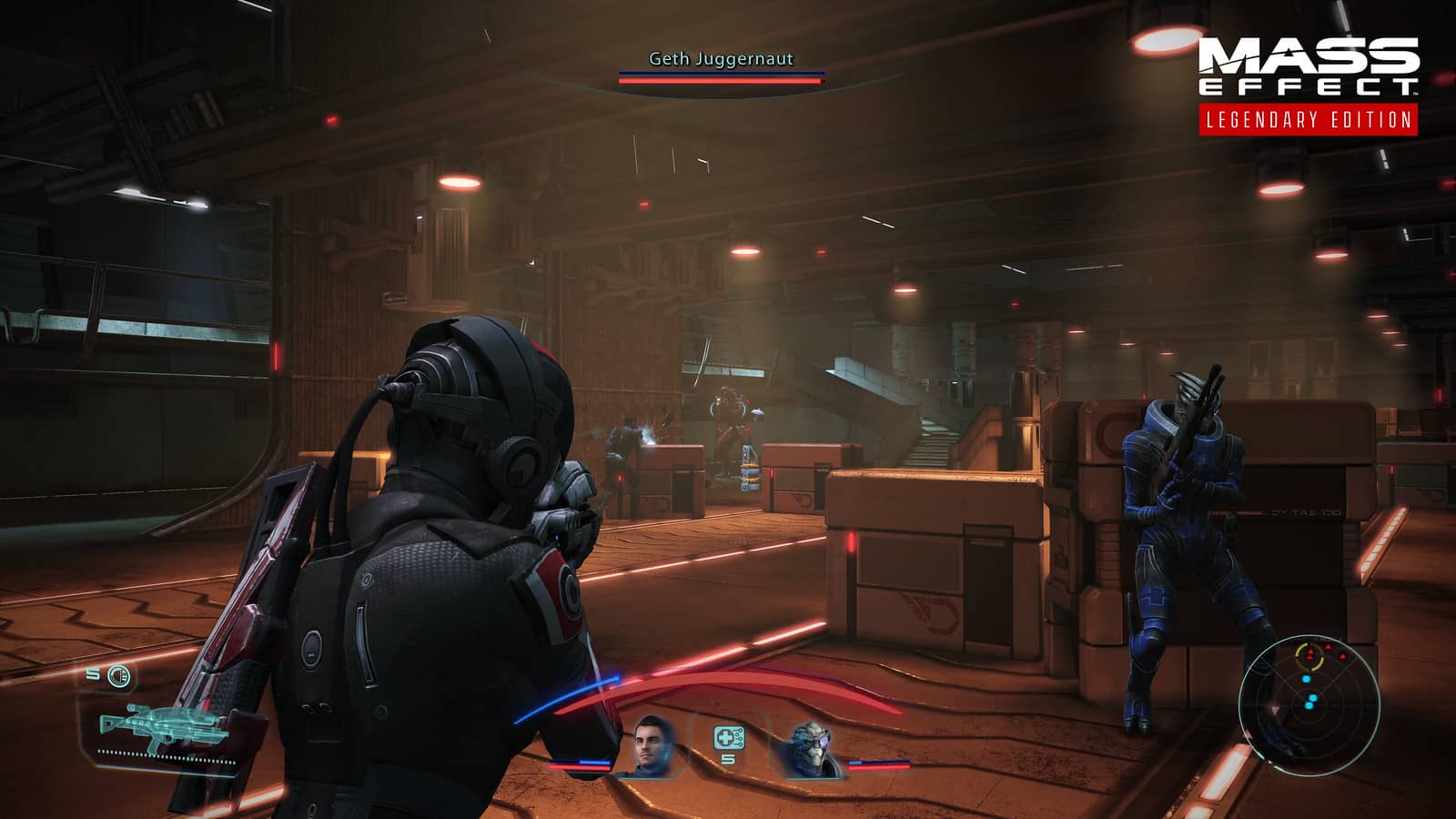A few hours into BioWare’s Mass Effect Legendary Edition, I walk Commander Shepard up to the galaxy map on the bridge of her ship for the first time. No doubt the warm feeling I get is partly a response to the familiar Tangerine Dream-esque synths that play in the galaxy menu. It’s also partly an odd sense of pride that this remaster of a 14-year-old game looks and plays better than 2017’s ill-fated Mass Effect: Andromeda. After so many years and several replays, this somehow feels like my own personal Mass Effect, and I am pleased that it stands up well in 2021. But mostly the warm feeling is because the Mass Effect galaxy menu reminds me of a simpler time for RPGs – a time before seemingly obligatory open-world maps bloated with collectibles and generic side tasks.
This might imply that Mass Effect was a perfectly paced, lean, and tightly structured RPG. Far from it. Even at the time of release Mass Effect was criticized for its cut-and-paste planet design, exhausting resource collection tasks, and overly long rides in a bouncy surface vehicle (which has been partially fixed in the remaster). The game box marketing promised “interplanetary exploration of an epic proportion,” but in reality most planets were just collections of well-written flavor text – they could not be landed on or otherwise explored.
Rather, I am nostalgic for the main and side quests that occur on the Citadel, Noveria, Feros, and a few other key locations. BioWare delivered them with unprecedented cinematic flair, largely thanks to Mass Effect’s innovative and now often-imitated dialogue selection wheel, but they still follow a classic approach to RPGs. That is — provide the player with a relatively small hub world that contains a bunch of quest givers, and have the player venture out of that hub into a limited surrounding area to complete the quests before moving on to another hub.

It’s an approach that worked for BioWare before in Star Wars: Knights of the Old Republic, which in many ways feels like a proof of concept for Mass Effect. But it also worked in numerous other highly regarded RPGs that preceded it: Diablo II, Vampire: The Masquerade – Bloodlines, and Deus Ex, to name only a few.
The hub world approach offers clear benefits. It’s possible to introduce varied locations without having to worry about seamlessly integrating them into each other. It enables the writers to pace the narrative around several clear choke points, usually mapping the transition between hubs to something like the classic three-act narrative structure. It reduces the desire and the capacity to fill the game world with extraneous content. And of course, it limits the demands on the development teams and hardware, or it allows developers to channel resources into other aspects of the game.
Mass Effect is therefore a game of two halves: the disappointingly generic “content for the sake of content” intended to foster the illusion that the game world is a living, breathing space, and the exceptionally written hub world narratives that earned the game acclaim and its cult status. In this way, Mass Effect is both a monument to RPGs that have gone before and a herald of the things to come, marking a somewhat awkward transition from the classic hub-world RPGs to modern open worlds crammed with filler content.
Of course, the open-world concept itself was nothing new when Mass Effect was released. And on that same token, its galaxy menu is not flooded with map markers for collectibles, high points to unlock parts of the map, outposts to clear to progress the game, elaborate crafting recipes to pursue, or any of the other modern open-world staples. But the warning signs are there in every planetary scan, every Thresher Maw confrontation, and every mineral deposit available for mining. They are highly repeatable, repetitive tasks loosely tied into the game’s lore and intended to give a sense of depth and additional content.

Given all this, it’s curious that the sequels did not attempt to complete the transition to a fully open world. In fact, aside from the infuriating planetary scanning tasks, Mass Effect 2 took an active step back from content for the sake of content. It kept planetary visits outside the main quests mercifully brief, to the point, and woven into the narratives found in the core hub worlds or on Shepard’s ship.
No doubt this was at least partly due to technological limitations; every Star Citizen backer knows how difficult it is to deliver a convincing fully open-world space opera. But I do wonder the extent to which the more focused structure of the Mass Effect sequels also signaled an implicit acknowledgement that certain types of RPGs are better served by the hub world approach than by open-world mechanics. After all, we’ve seen it elsewhere over the years. Compare the large but ultimately limited hubs of the Deus Ex franchise with the open world of Cyberpunk 2077. Consider the hubs offered in recent RPGs, like Divinity: Original Sin 2 and the upcoming Baldur’s Gate 3.
In other words, Mass Effect Legendary Edition is more than just a chance to revisit a few excellent games updated with modern bells and whistles. It’s a reminder that, even in the AAA RPG space, not everything needs to tend towards open worlds. There is still a place, and perhaps there always will be, for more linear and tightly constructed narratives.





